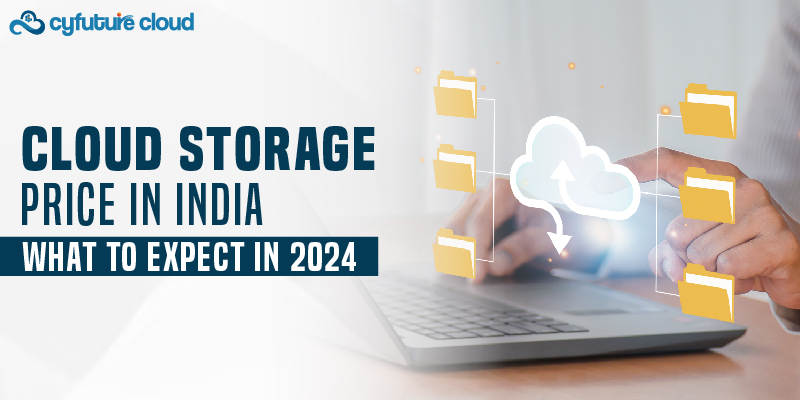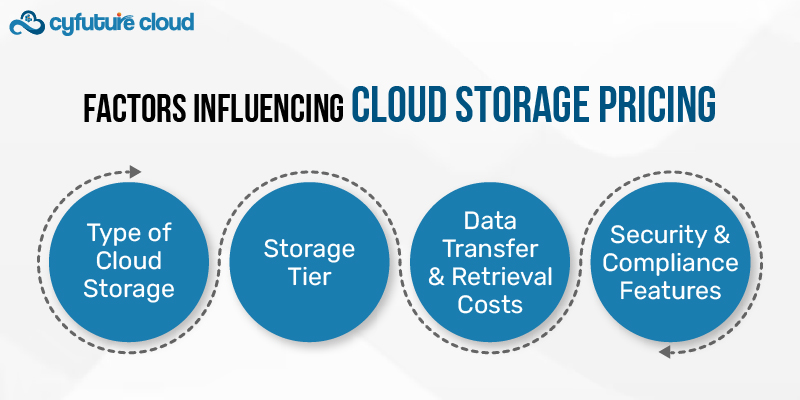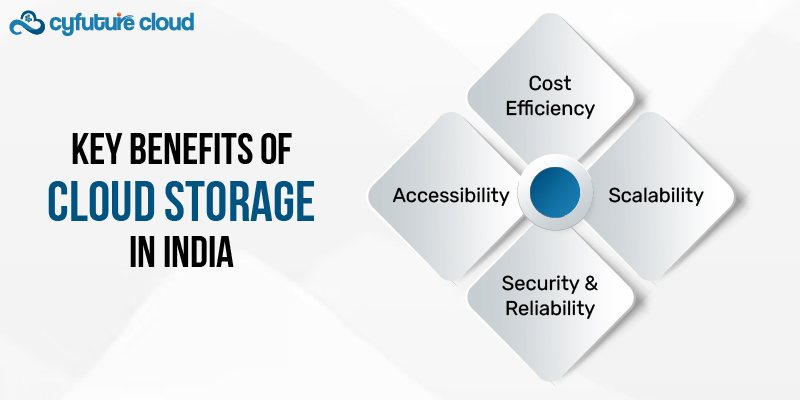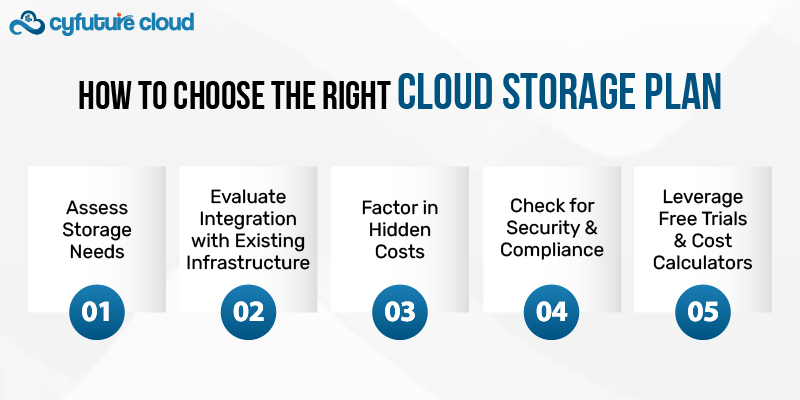 Server
Colocation
Server
Colocation
 CDN
Network
CDN
Network
 Linux Cloud
Hosting
Linux Cloud
Hosting
 VMware Public
Cloud
VMware Public
Cloud
 Multi-Cloud
Hosting
Multi-Cloud
Hosting
 Cloud
Server Hosting
Cloud
Server Hosting
 Kubernetes
Kubernetes
 API Gateway
API Gateway


As businesses and individuals continue to adopt cloud-based solutions, understanding the pricing landscape of cloud storage in India becomes increasingly important. With advancements in technology and growing demand, cloud storage has become an integral component of IT infrastructure. This guide delves into the factors influencing cloud storage costs in 2024, helping you plan your budget effectively while integrating services like server hosting, colocation, and hybrid solutions.

The cost of cloud storage depends on the type of storage solution you choose:
Object Storage: Ideal for unstructured data, such as multimedia files.
Block Storage: Best suited for databases and virtual machines.
File Storage: Designed for shared access and collaborative workflows.
Each type offers different pricing models, influenced by data usage and scalability requirements.
Cloud providers typically offer tiered storage options based on access frequency:
Hot Storage: For data that needs frequent access; higher cost per GB.
Cold Storage: For rarely accessed data, such as backups; lower cost but with retrieval fees.
Archival Storage: Extremely cost-effective for long-term data storage with infrequent access.
Choosing the right tier for your workload can optimize costs significantly.
While storage rates may appear competitive, hidden costs can arise from data transfer or retrieval. For example:
Uploading data to the cloud is often free, but downloading large volumes may incur charges.
Migration between colocation environments and cloud storage may involve additional network fees.
Advanced security features like encryption, data redundancy, and compliance certifications (e.g., GDPR, ISO) can increase costs but are essential for regulated industries such as healthcare and finance.
Many businesses require dynamic storage solutions that can scale with their growth. Providers may charge premium rates for flexible, pay-as-you-go models that allow seamless scalability.

With the growing number of cloud providers in India, pricing is expected to remain competitive. Customers can benefit from discounts, promotional offers, and volume-based pricing.
Many businesses are adopting hybrid cloud models, combining server hosting in colocation data centers with public cloud storage. This trend is likely to impact pricing strategies, encouraging providers to offer bundled solutions.
Sustainable and energy-efficient storage solutions are becoming a priority, potentially affecting pricing. Businesses might face higher upfront costs for greener options but could save on operational expenses over time.
Providers are adding advanced features like AI-powered data analysis, backup automation, and integrated collaboration tools without significantly increasing prices, making cloud storage a more attractive option.
.jpg)
Although prices vary by provider and region, here’s a general breakdown:
Hot Storage: ₹1.5–₹3 per GB per month.
Cold Storage: ₹0.7–₹1.5 per GB per month.
Archival Storage: ₹0.2–₹0.5 per GB per month.
Additional costs to consider include:
Data Transfer: ₹2–₹5 per GB for data egress.
Backup Services: ₹10–₹20 per GB for managed backups.

Cloud storage eliminates the need for physical hardware and maintenance, making it a cost-effective alternative to traditional server hosting or colocation solutions.
Businesses can scale their storage requirements up or down based on demand, avoiding over-provisioning costs.
Cloud storage ensures data accessibility across devices and locations, enhancing productivity and collaboration.
Advanced encryption and multiple data redundancy layers ensure data safety, even during hardware failures or cyberattacks.

Identify how frequently your data will be accessed. For instance, use hot storage for operational files and cold storage for archives.
Ensure compatibility between your colocation or on-premises servers and cloud storage to enable seamless workflows.
Account for data transfer fees, backup charges, and additional costs associated with scaling or retrieving data.
Opt for solutions that provide end-to-end encryption and meet regulatory standards relevant to your industry.
Many providers offer free trials or pricing calculators, allowing you to estimate costs before committing to a plan.
Cloud storage in India continues to evolve, offering scalable, secure, and cost-efficient solutions for businesses and individuals alike. By understanding the factors influencing pricing and analyzing your specific needs, you can choose the right storage plan that aligns with your operational goals. Whether you’re integrating cloud storage with hosting, colocation, or standalone server setups, the options available in 2024 ensure that you get the best value for your investment.

Let’s talk about the future, and make it happen!
By continuing to use and navigate this website, you are agreeing to the use of cookies.
Find out more


